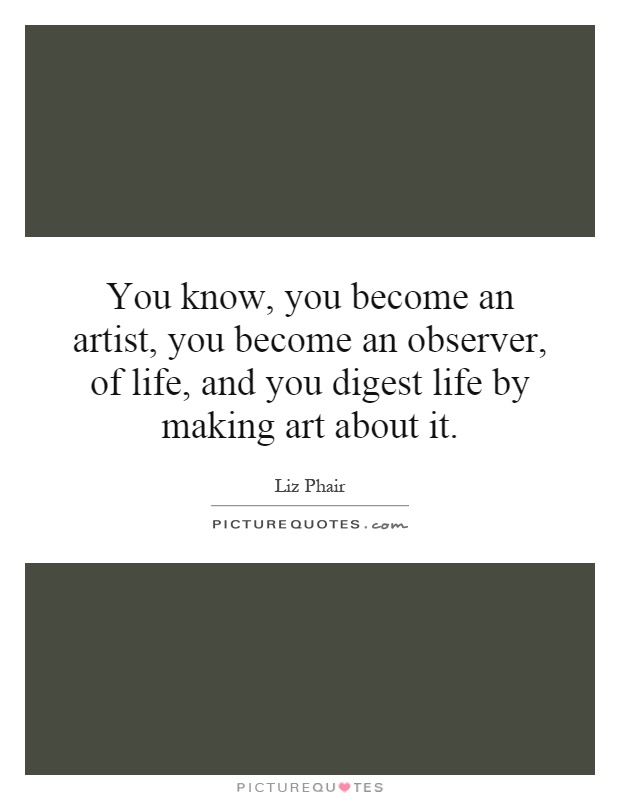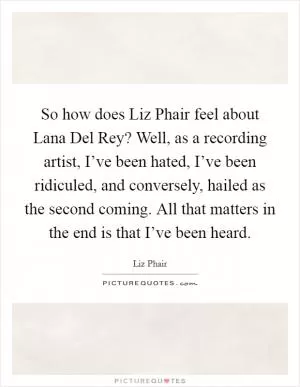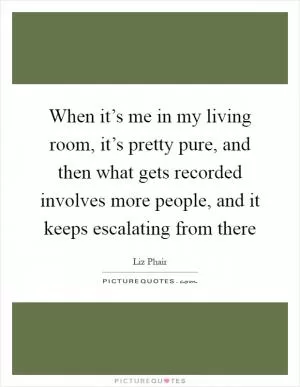You know, you become an artist, you become an observer, of life, and you digest life by making art about it

You know, you become an artist, you become an observer, of life, and you digest life by making art about it
Liz Phair, the iconic singer-songwriter known for her raw and honest lyrics, perfectly embodies the idea that becoming an artist means becoming an observer of life. Throughout her career, Phair has used her music as a way to process and make sense of the world around her, turning her personal experiences and observations into powerful works of art.Phair's debut album, "Exile in Guyville," is a prime example of how she uses her art to digest life. The album, released in 1993, is a response to the Rolling Stones' classic album "Exile on Main St.," and serves as a feminist critique of the male-dominated music industry. In songs like "Fuck and Run" and "Divorce Song," Phair explores themes of love, sex, and relationships with a candidness and vulnerability that is both refreshing and relatable.
As an artist, Phair has always been unafraid to tackle difficult subjects and push boundaries. She has a knack for capturing the complexities of human emotions and relationships in her music, often drawing from her own experiences to create songs that are both personal and universal. By observing the world around her and reflecting on her own life, Phair is able to create art that resonates with listeners on a deep and emotional level.
In an interview with NPR, Phair once said, "I think that's what artists do. They take in the world around them and they process it and they spit it back out in a way that's meaningful to them." This sentiment perfectly encapsulates Phair's approach to making art. By observing and digesting life, she is able to create music that is not only authentic and honest, but also deeply impactful.












 Friendship Quotes
Friendship Quotes Love Quotes
Love Quotes Life Quotes
Life Quotes Funny Quotes
Funny Quotes Motivational Quotes
Motivational Quotes Inspirational Quotes
Inspirational Quotes